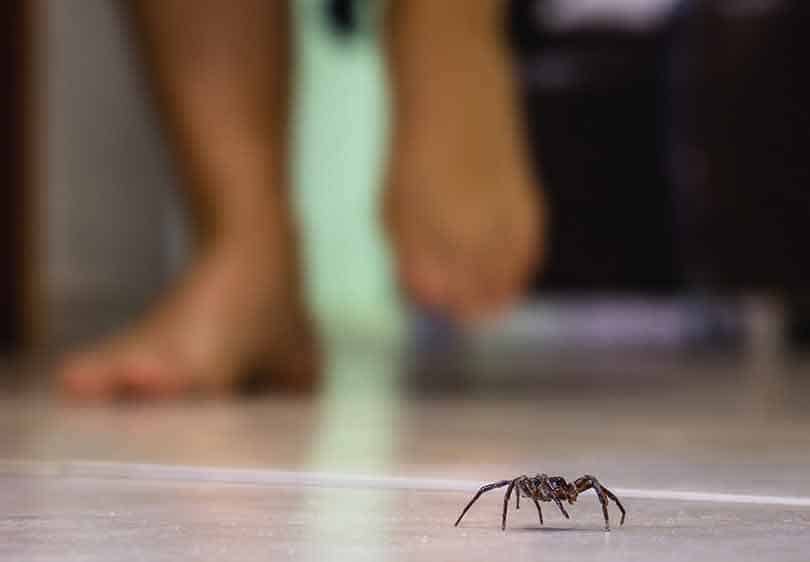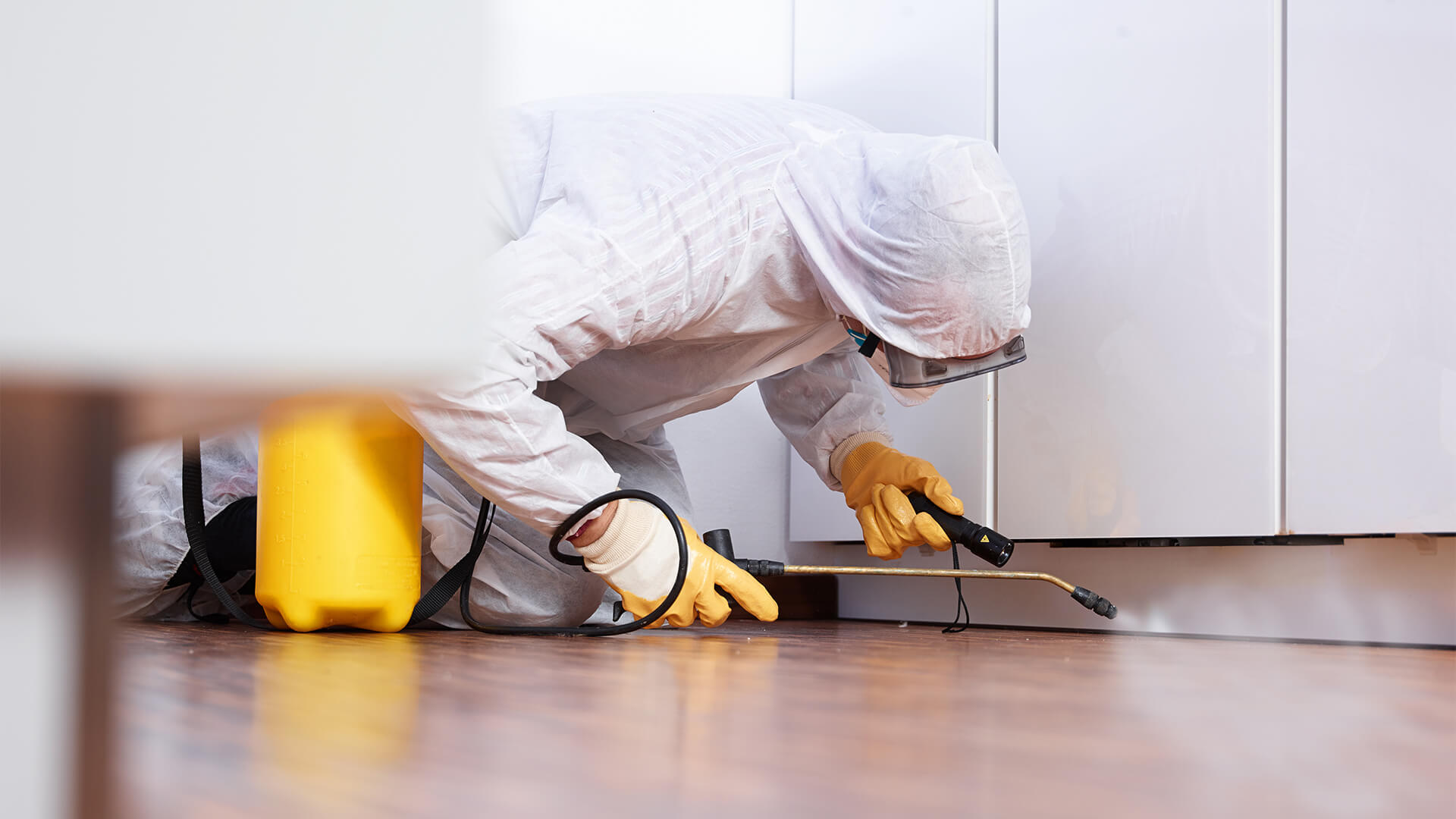Say Goodbye to Unwanted Visitors: Orem Pest Control at Your Service
Wiki Article
Discovering the Various Sorts Of Parasite Control Techniques and Their Applications
Bug control is a vital element of keeping a risk-free and healthy atmosphere, whether it remain in residential, industrial, or farming setups. Different methods have been created and fine-tuned throughout the years to properly alleviate and take care of pest invasions. From chemical techniques that target certain parasites to biological approaches that harness all-natural predators, the realm of bug control is varied and vast. Understanding the various types of insect control strategies and their applications is crucial for applying one of the most sustainable and suitable options. Allow's explore the ins and outs of these techniques and how they can be properly utilized to address pest-related challenges.Chemical Insect Control Techniques
Chemical insect control strategies are commonly utilized in agriculture and bug monitoring to efficiently eradicate or regulate pest infestations. These techniques involve the use of chemical compounds, such as insecticides, herbicides, and chemicals, to decrease or eliminate pest populaces that present a danger to plants, livestock, or human wellness. Pesticides, as an example, target particular parasites like rats, bugs, or weeds, interrupting their life cycles or creating direct damage upon contact. Herbicides are especially designed to control undesirable plant life that competes with plants for resources and nutrients. Insecticides, on the various other hand, are made use of to fight insect parasites that can damage plants and transmit conditions.While chemical bug control strategies can be very effective in managing pest populaces, they additionally raise problems about potential environmental and health risks. It is essential to comply with safety and security standards, make use of incorporated pest administration techniques, and consider different methods to minimize the unfavorable impacts of chemical insect control methods.
Organic Pest Control Approaches
 Organic parasite control approaches utilize living microorganisms to take care of and reduce insect populaces in a ecologically pleasant and sustainable fashion. This strategy entails introducing natural killers, parasites, or pathogens to control bugs without the demand for artificial chemicals. One usual approach is the release of ladybugs to fight aphids in yards, as ladybugs are natural predators of these harmful bugs. An additional instance is making use of Bacillus thuringiensis (Bt), a bacterium that produces toxic substances deadly to specific insect larvae, to regulate caterpillars and mosquitoes.
Organic parasite control approaches utilize living microorganisms to take care of and reduce insect populaces in a ecologically pleasant and sustainable fashion. This strategy entails introducing natural killers, parasites, or pathogens to control bugs without the demand for artificial chemicals. One usual approach is the release of ladybugs to fight aphids in yards, as ladybugs are natural predators of these harmful bugs. An additional instance is making use of Bacillus thuringiensis (Bt), a bacterium that produces toxic substances deadly to specific insect larvae, to regulate caterpillars and mosquitoes. 
Organic bug control techniques use several advantages over chemical techniques. In general, organic parasite control approaches offer a all-natural and reliable choice to standard chemical therapies, promoting a balanced environment and healthier settings.
Physical Bug Control Approaches
Utilizing physical techniques to control bugs entails the usage of mechanical or non-chemical ways to manage and alleviate pest infestations effectively. One common physical insect control method is the installation of fences, internet, or screens to block parasites from entering specific areas.An additional physical technique is making use of traps, such as breeze traps for rats or pheromone traps for bugs. These traps aim to catch parasites without posturing any type of risk to people or the environment. In addition, physical control techniques can include strategies like handpicking parasites off plants, utilizing vacuum cleaner devices to eliminate bugs, or using heat therapies to remove bed insects and various other parasites in ravaged locations.
Integrated Insect Management Strategies
Implementing an all natural approach to pest monitoring, Integrated Parasite Management (IPM) approaches aim to incorporate different efficient strategies to image source prevent and control insect problems while reducing environmental impact and guaranteeing lasting parasite control practices. IPM entails the combination of several control approaches such as biological control, cultural methods, mechanical control, and the careful use of pesticides.

Furthermore, IPM highlights the significance of surveillance and analyzing pest populaces to identify the most proper control approaches. By implementing IPM approaches, pest control efforts come to be a lot more targeted and effective, decreasing the risks related to extreme chemical use and advertising long-term pest monitoring options.
Natural and Organic Bug Control Options

One popular organic parasite control technique is neem oil, obtained from the seeds of the neem tree, which acts as a repellent and interrupts the development and development of bugs. Diatomaceous planet, a natural silica-based powder, is another reliable natural bug control choice that works by drying out pests upon call. By incorporating organic and all-natural parasite control options right into pest management methods, people can successfully manage bugs while lessening damage to the environment and advertising sustainable practices.
Final Thought
In final thought, various pest control methods such as chemical, organic, physical, integrated parasite monitoring, and natural choices are offered for properly taking care of insect problems. Each method has its own benefits and applications depending on the kind of insect and the setting. By comprehending the various kinds of insect control strategies and their applications, people can make enlightened decisions on one of the most ideal strategy to manage parasites and secure their building.Chemical parasite control techniques are widely utilized in agriculture and parasite monitoring to effectively eliminate or manage pest infestations - Orem Pest Control. All-natural insect control approaches article source entail utilizing organic control representatives, such as bloodsuckers or killers, to manage bug populations. By incorporating natural and natural bug control options into insect monitoring techniques, people can properly control parasites while reducing damage to the setting and promoting sustainable techniques
In verdict, numerous parasite control methods such as chemical, organic, physical, incorporated parasite administration, and natural options are offered for efficiently managing insect invasions. By recognizing the different kinds of parasite control techniques and their applications, people can make informed decisions on the most ideal technique to manage bugs and safeguard their building.
Report this wiki page